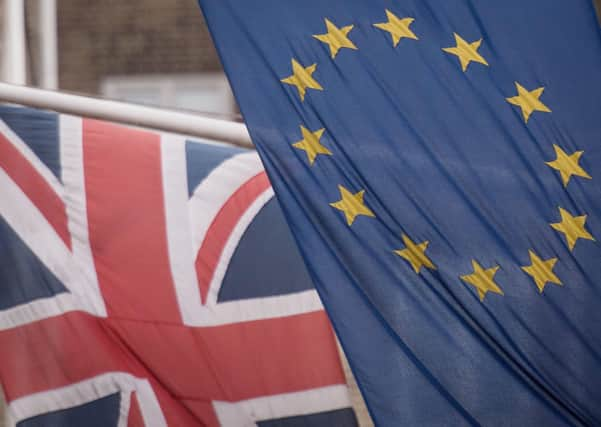Unionists have been shown how they would be treated when Irish nationalists have power


In drawing on his mammoth studies into political power, the American biographer Robert Caro observed that power doesn’t necessarily corrupt, but it certainly reveals.
Taken on those terms, the protocol saga reveals an ugliness to Irish nationalism which unionists would not have foreseen in 2015.
Advertisement
Hide AdAdvertisement
Hide AdThe protocol may or may not survive combined unionist and loyalist opposition — that’s a topic for another day. However, its handling has sent a very clear message about how nationalism treats unionists and unionist rights whenever nationalism is intoxicated with political power (through joint backing of the US and EU in this instance).


Dermot Nesbitt has noted that the protocol breaches the rights of unionists under the Council of Europe and David Trimble has explained that it “rips apart” the 1998 agreement and turns Northern Ireland “into a colony of the European Union”.
This is because 60% of the laws that govern Northern Ireland’s economy would, under the protocol, be made under the jurisdiction of a foreign EU court, with input from politicians in the Irish Republic.
For any unionist the point is clear: if your rights and peace agreement are being trampled over while you have a home in Northern Ireland, then how much worse would it be in the nationalist (and perhaps Sinn Fein governed) Republic?
Advertisement
Hide AdAdvertisement
Hide AdWhile the protocol saga goes on, the same tired figures speak to each other at the same new Ireland forums (while largely talking at unionists) in a bid to manufacture a media narrative about an escalating ‘conversation’.
Talk in recent times about a united Ireland has long pointed towards a nationalism that is happy to indulge in PR-friendly token gestures and platitudes about equality and minority protections.
However, for all the talk of rights, diversity, parity of esteem and mutual respect, the protocol’s handling has revealed a nationalism that views unionist rights as conditional, and which sees unionism’s role as acquiescing to the demands of nationalism.
Despite this, I have no doubt that we’ll hear much rhetoric from the usual suspects — SDLP, FG, FF, SF — about the need for unionists to ‘join conversations’ in the coming weeks and months.
Advertisement
Hide AdAdvertisement
Hide AdFollowing nationalism’s non-engagement on the centenary of Northern Ireland and radical reform of the protocol, unionism will rightly reciprocate by not engaging in their New Ireland conversation.
In looking to history, unionists partly backed the Union over the South a century ago because they correctly understood that they would be ran roughshod over in a sectarian religious state.
That church may now be diminished but a new religious adherence to the EU provides a curious (if less existential) modern parallel about the treatment of unionist rights whenever they contradict the religious cause of a politically powerful nationalism.
The conclusion is the same today as it was then; albeit it is a timely reminder for unionists.
Advertisement
Hide AdAdvertisement
Hide AdBased on Caro’s lesson, the protocol saga has revealed the true face of nationalism, along with just how precious our home is.
• Philip Wilson is a Master in Politics and History from King’s College London who has worked in Stormont
——— ———
A message from the Editor:
Thank you for reading this story on our website. While I have your attention, I also have an important request to make of you.
With the coronavirus lockdown having a major impact on many of our advertisers — and consequently the revenue we receive — we are more reliant than ever on you taking out a digital subscription.
Advertisement
Hide AdAdvertisement
Hide AdSubscribe to newsletter.co.uk and enjoy unlimited access to the best Northern Ireland and UK news and information online and on our app. With a digital subscription, you can read more than 5 articles, see fewer ads, enjoy faster load times, and get access to exclusive newsletters and content. Visit https://www.newsletter.co.uk/subscriptions now to sign up.
Our journalism costs money and we rely on advertising, print and digital revenues to help to support them. By supporting us, we are able to support you in providing trusted, fact-checked content for this website.
Alistair Bushe
Editor